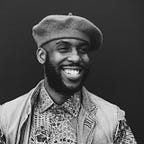To whom it may concern,
Today, I am happy. Today, I am free.
As we approach the 50th anniversary of the Stonewall Rebellion (June 28–29, 1969), I must also remember the rebellions at Compton’s Cafeteria (San Francisco, 1966) and Cooper Do-Nuts (Los Angeles, 1959) that came before. I must remember the black and brown, poor, trans, drag queens, and disabled members of our community who led those rebellions. I must remember those, like Joey and Ray, who I met via the Student Retention Center in college, who took me under their wings and gave me the “street syllabus” on being queer during my freshman year. I must remember there is a body count for liberation. Sometimes that body count is our own. Sometimes, it has been my own.
When I began college at 18, I was walking up a steep hill during my UCLA Orientation on my way to meet Roxanne Neal, who was the director of orientation programs at the time who I’d later meet again when I became an orientation counselor myself. Her influence on my learning and becoming stays with me until today. While I walked up that hill, for the first time, in my entire life, I saw two men, in person, holding hands walking down Charles E. Young Driveway. It was an incredible image of pride and freedom that neither television nor my upbringing in Los Angeles, Bellflower, or Compton, California had afforded me. One afternoon, sitting at home watching The Ricki Lake Show after school, I was told that I risked being disowned by my mother if I ever “came out.” I had no idea what “coming out” was, but I made the connection with the flamboyantly queer folks on television in front of me, the folks that Ricki was celebrating. This person had given a pre-teenage kid a sexuality, a gender orientation, and a false identity before I had the opportunity to create one for myself.
So, I stayed in that box for more than ten years. My college partner, and fiancé (at the time) would toil over why I couldn’t be as “out” as he and he didn’t fully comprehend why I was able to love him, but not celebrate us publicly and fully during those college years. He had never been verbally and psychically threatened by someone he trusted, in the way I had. In other ways, yes. We were at an impasse. I can still feel those days deeply hidden within a closet in such a way. In a room. Alone. Futile.
However, like many in my community, I still carry that memory and trauma. I have done much work to overturn that trauma of a single conversation to a young boy sitting on furry brown carpet simply watching television after school, being a kid. But that work, and our work, continues.
When James Baldwin wrote Giovanni’s Room, American publishers did not want to publish the book for fear that it clashed with his identity as a black, male, activist and public figure. At the now-closed Riviera Cafe in the West Village in New York, Baldwin told Richard Goldstein, Giovanni’s Room is not about “homosexuality” (a pejorative word we’ve mostly discarded in writing, a term that did not even enter our lexicons in describing same-sexual-desire relationships until the 1890s). However, Baldwin tells Goldstein that the novel “is about what happens when you’re afraid to love anybody. As the main character, David says:
“For nothing is more unbearable, once one has it, than freedom.”
In the photo above, Kyle Stein, the photographer, asked me to “do something” with my hands, which is when I embarrassingly have no idea what to do. So, I channeled Pepper LaBeija during the end credits of Paris is Burning, put my hands up to my face, and said, “And, soul.”
This act was something I could not conceive of doing 20 years ago.
PS — It is astounding to think that a declaration as mines in these words, 50 years ago in New York, would have led to a loss of employment, being hauled off in the paddy wagon and a jailhouse conviction. And yet, while I have a privilege in some cases to escape that plight today, so many others around the world do not, as we celebrate World Pride during this year of 2019. Thank you to those like Marsha P. Johnson and Sylvia Rivera and the many liberation fighters who paved a way, when there was no way. We pay homage. And in the words of Pearl Cleage, “We speak your names.”
Sincerely,
MAB
